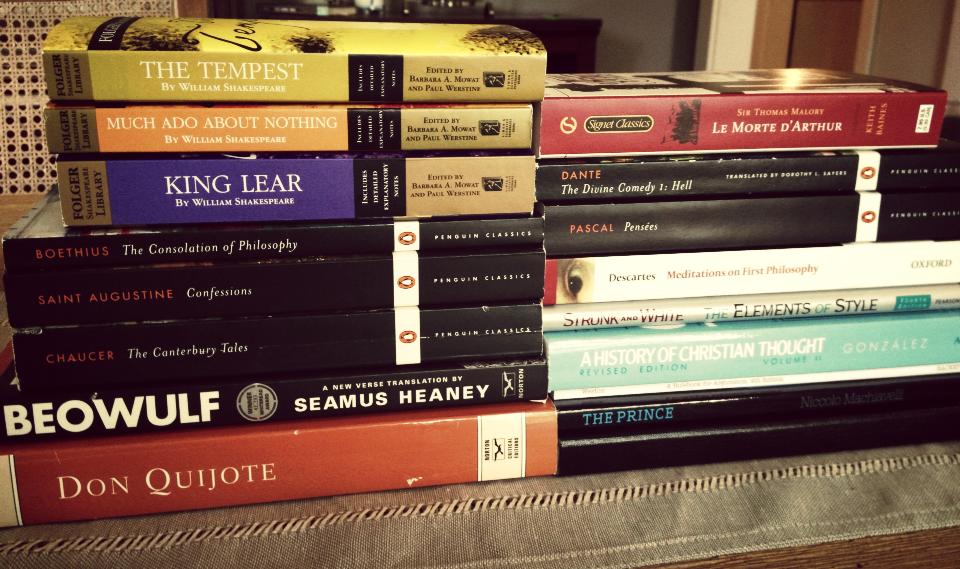By Todd Wagenmaker –
When the Online Computer Library Center publishes its “Top 1,000” list of banned books, we at Providence note that several of our required texts are listed. The list of verboten books might surprise you: Huck Finn, Tom Sawyer, Gulliver’s Travels, Don Quixote, Canterbury Tales, and the Scarlet Letter all appear in the top ten.
Many of the banned books appear on the list because they are politically incorrect. Mark Twain’s books, for example, are usually banned because Twain uses the “N” word to describe slaves. Other titles on the list are banned because they contain racy content, like the Canterbury Tales and The Scarlet Letter. Why do we have students read these offensive books? And how do we apply God’s Word which says, “Whatever is true, whatever is noble, whatever is right, whatever is… lovely, think on such things” (Phil. 4:8).
As a Classical school, we read racy books by Chaucer and Homer because they contain keen insights into the human condition. They tell great stories of heroism and hope, cowardice and compromise. Through the classics, we teach students to recognize and to love the true, the good and the beautiful. Sometimes, students need to see that cowardice and compromise masquerade as wisdom. For example, by dissecting Twain’s charlatan character, “The Duke,” we help students discern the true from the tawdry. We can show students that not all people who claim to be preachers of righteousness are doing the Lord’s work.
Furthermore, as a Christian school, we can use the number one banned book, the Bible, as a measuring stick for all the other classics. We do not shrink back from reading Huck Finn merely because Twain calls slaves niggers. With Scripture as our guide, we can teach students that antebellum attitudes toward blacks disrespected people who were made in the image of God. Therefore, we teach that using the “N” word is wrong, not because of elitist public opinion, but because God says, “you shall not murder (or show contempt for your neighbor”).
The Bible itself has many racy chapters. God, in His providence, did not edit out the gory, explicit chapters (“ALL Scripture is inspired by God and is profitable for teaching,” etc.). When God exhorts us to think on the noble, the right, the lovely, and the pure, He does not mean that we avoid any references to the ugly or the false. Rather, God expects us to grow in our ability to discern the good from the bad. The proper use of Scripture sharpens us and guides us in the way of the good, the true and the beautiful.
What materials do American schools have at their disposal to teach discernment? All too often, they choose bland books or politically correct books that do not offend preferred people groups. But even when other schools use good books like Animal Farm, Night, or Lord of the Flies, they fail to teach discernment. Because government schools are supposed to be morally and ethically neutral, public school teachers are ethically handcuffed and cannot teach the obvious, let alone subtle, moral truths. In our family’s experience, public school teachers not only missed the great themes, but they often distorted the classic themes in the great books.
As a Classical school, our goal is to develop critical thinkers. The Classics provide the best canvas for teaching critical thinking skills. With Scripture as our guide, we embrace the banned books and delight in them and teach them.



